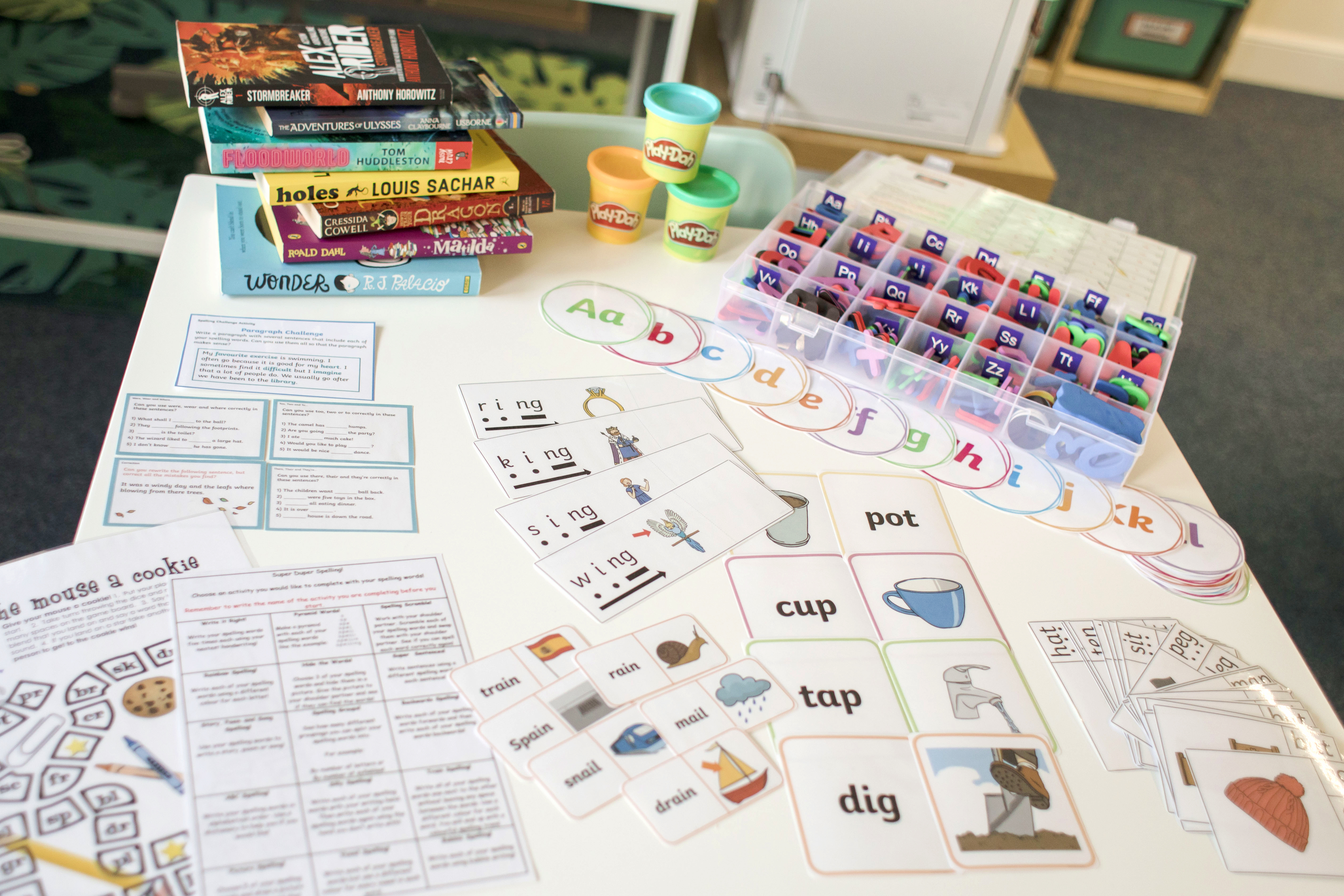The summer holidays are approaching, but academically-minded parents will be looking ahead to September and the 11 Plus exam. It can feel like some children have been preparing for grammar school since birth, but if this is your first time thinking about the 11 Plus, you might have lots of questions.
This guide explains what the 11 Plus is, how best to prepare your child, and what resources are available to you.
Let’s get started!

What is the 11 Plus exam?
The 11 Plus exam is taken by students in England to get into grammar school. It’s often known as a ‘transfer test’ because children sit the exam before transitioning to secondary school. Eleven plus exams are designed to test academic ability. The 11 Plus is so named because pupils are usually aged between 11 and 12 when they sit the exam.
The 11 Plus is only taken in some parts of England; Scotland and Wales no longer have grammar schools. The last 11 Plus exam in Northern Ireland was held in 2008. However, backlash from grammar schools and parents has led to a different type of selective entrance exam in Northern Ireland for some schools.
History of the 11 Plus Exam
In 1944 UK pupils sat an 11 Plus exam for the first time. Those who passed could transition to a grammar school, but unsuccessful children went to a ‘modern’ or technical college. In those days, children who attended grammar schools had a better chance of getting into a university.
There are 164 grammar schools in England across 22 regions. These selective schools rank high in secondary school league tables so competition is fierce.
Grammar school entry requires pupils to pass an exam, called the 11 Plus. A few grammar schools admit students by ranked order, which has led to accusations of inequality.

Are Grammar Schools Worth It?
If your child enjoys academic subjects and thrives on achievement, a grammar school might suit them. Grammar schools regularly top national league tables and their students consistently achieve better grades than students from other secondary schools.
State grammar schools focus heavily on academics. Think literature, mathematics, the sciences, and languages. Therefore, it’s worth considering what jobs your child might pursue as an adult and whether they’d benefit from a highly academic environment or a school that offers a wider range of subjects.
Something else to take into account with grammar schools is social mobility. The Higher Education Policy Institute found that 39% of students progress to highly-selective universities. Grammar school students go on to enjoy successful careers and greater earning potential than comprehensive school pupils. The friends and connections made at grammar school often transition into an influential professional network once students leave school.
Unlike private schools, grammar schools don’t charge fees.

What does the 11 Plus exam involve?
The 11 Plus exam consists of 4 parts:
- English
- Maths
- Verbal reasoning
- Non verbal reasoning
Maths
The test involves KS2-level mathematics. Knowing the times tables up to 12 is a huge advantage. Other topics often covered in the test are:
- Addition, subtraction, multiplication, and division
- Numerical reasoning
- Measuring distance, time, and speed
- KS2 algebra
- Fractions, decimals, and percentages
- Shapes
- Number place and value

English
The English test is harder to prepare for because topics can vary. Reading books will help your child develop a wider vocabulary, which is an essential part of the test. Generally, English skills are determined by testing:
- Punctuation
- Vocabulary
- Recognising nouns, verbs, adjectives, prepositions, and pronouns
- Ability to form coherent sentences
- Reading comprehension
- Ability to recognise synonyms and antonyms
- Ability to structure an essay
Usually, there is a creative writing element to the English paper, too

Verbal Reasoning
Verbal reasoning tests children’s problem solving skills. Students may notice a crossover with the English paper. However, maths can form part of verbal reasoning test papers, too.
Due to the more abstract nature of verbal reasoning tests, children might them harder to prepare for.
To help children prepare consider:
- How well they follow written instruction
- The relationship between words
- Processing verbal information quickly
- Number logic
- Word puzzles
While the English paper tests skills such as grammar and vocabulary, the verbal reasoning test is designed to test a child’s problem solving skills and creative thinking. Their speed and accuracy with maths concepts will be tested.
Non Verbal Reasoning
Non verbal reasoning assesses how a child analyses visual information and if they can solve problems with visual logic.
Topics that show up include:
- Geometry puzzles
- Knowing which shape comes next in a sequence
- Recognising patterns with rotation and symmetry
Non verbal reasoning tests are the hardest to study for because they test a child’s ability to solve problems without prior knowledge. Practicing questions like “Which is the odd one out?” or “What diagram comes next?” will help boost their confidence.
Who takes the 11 Plus exam?
Grammar school areas are exclusive to England. The 11 Plus exam is sat by pupils over the age of 11 in their final year of primary school.
Is the 11+ exam compulsory?
Children in the catchment area for a grammar school will be automatically registered for the 11 Plus. However, it’s up to parents if they feel grammar school is suitable for their child. In this sense, the test is non-compulsory.
Bear in mind though that grammar school entry is academically selective. Therefore if you want your child to attend grammar school the test is compulsory.
Why should my child sit the 11 Plus?
Passing the 11 Plus is an achievement that could broaden your child’s academic horizons. Grammar schools are among the best secondary schools in the country, with a reputation for excellence.
It’s been shown that grammar school pupils:
- Make greater progress from KS3 to KS4 than pupils from other schools
- Gain access to subjects not studied at state schools
- Benefit from a comprehensive education programme
- Achieve success in their chosen career
- Form influential friendships and connections that benefit them later in their professional life
Will the 11 Plus put pressure on my child?
One disadvantage of the 11 Plus exam is undoubtedly the pressure it can put on children to succeed. If children feel their worth is judged solely on academic performance they can develop anxiety and low self-esteem.
There’s also the issue of your child feeling ‘left behind’ if their friends get into grammar school and they don’t.
The 11 Plus can be stressful for parents, too! While grammar schools are not fee paying, many parents pay private tutors to help their child pass the 11 Plus. Depending on personal circumstances, this can place a financial strain on households.
When do pupils sit the 11 Plus?
Pupils sit the 11 Plus in September, at the start of the school year. Results arrive in October, which allows parents time to apply for their chosen grammar school.
Where do pupils sit the 11 Plus?
Pupils might be asked to travel to a central location, like their local grammar school, to sit the test.
In other instances, the test will be taken in their primary school classroom.
The 11 Plus is a timed exam and lasts between 45 minutes to 1 hour.
What percentage do students need to pass?
Individual schools have different pass rates for the 11 Plus. As a rule, most require pupils to achieve over 80% in their school entrance exam.
Areas with fewer grammar schools (like Greater London) require a higher pass rate due to demand.
When to prepare for the 11 Plus exam
As previously mentioned, the 11 Plus exam is sat in September at the start of Year 6.
While this gives the summer to revise, it’s wise to start your child’s preparation a year early. One reason for this is to take pressure off your child. Studying little and often is more effective and less stressful than intensely cramming in the summer holiday.
Read our blog for study tips!
How to prepare for the 11 Plus
Preparing children for the 11 Plus involves studying Maths, English, Verbal reasoning, and Non verbal reasoning – the 4 different skills they will be tested on.
Start preparing early
Some children need more preparation than others. In general, it’s best to start sooner rather than later. This allows plenty time to study while also discussing your child’s progress at regular intervals with their teacher or tutor.
Starting early means your child won’t become overwhelmed by a mountain of revision. It also gives you time to hire a tutor if necessary.

Note key strengths and weaknesses
It’s easier to plan study sessions if you know where there are gaps in your child’s knowledge. Spend more time on subjects they find challenging, but remember that little and often is key to preventing overwhelm!
Because the verbal and non verbal reasoning parts of the test are more abstract, it’s worth devoting extra time to these elements to ensure your child fully understands what is asked of them.
Use 11 plus practice papers
Practice papers and mock tests allow your child to become familiar with the questions they’ll be asked. While no one can be 100% sure what questions will appear in the test, familiarity with the structure of the 11 Plus will help ease their worries on the day.
Practice tests or test papers are particularly useful for studying the verbal and non verbal reasoning tests, which aren’t part of the regular school curriculum. Mock exams can help children develop time management skills.
Access free 11 Plus past papers here.
Encourage your child with regular praise
Many children experience anxiety or stress while preparing for exams. This is often due to fear of failure.
Teaching your child that it’s ok to make mistakes and praising effort over outcomes helps to reduce stress and boost self esteem. Your child might be scared that you’ll think less of them if they fail the 11 Plus, so it’s important to show them that you love them regardless of whether they pass or not.
Try implementing a reward system for each test paper completed or if they achieve a milestone in a tricky subject. Nothing motivates like a trip to the cinema or the promise of Friday night pizza!

Should I pay for private tutoring?
Many schools don’t help children prepare for the 11 Plus, the onus is on the parents. That’s why many parents choose to hire a private tutor.
A private tutor understands the demands of the 11 Plus exam and how it’s delivered in your region. This can help your child prepare more efficiently by taking the guesswork out of exam preparation. Tutors will also know the national curriculum in depth and be skilled in exam technique.
Demand for private tutors is high due to grammar school’s competitive entrance exams.
LS Tuition tutors have expert knowledge of the 11 Plus. All our tutors tutors are skilled in teaching maths and English at the level required to pass the test. We take a ‘whole child’ approach to learning. This simply means developing a child’s analytical and creative thought, alongside academic work – skills that feature in the verbal and non verbal reasoning part of the 11 Plus.
If you want to help your child pass their 11 Plus exam, we’d love to help!
We hope you found this guide to the 11 Plus useful. Ultimately there’s no right or wrong answer to whether your child should sit the 11 Plus. Every child is different, but if yours excels academically then the 11 Plus exam could open the door to future achievement.
If you want to help your child reach their full potential, you might be interested in our study tips or the benefits of summer school.

